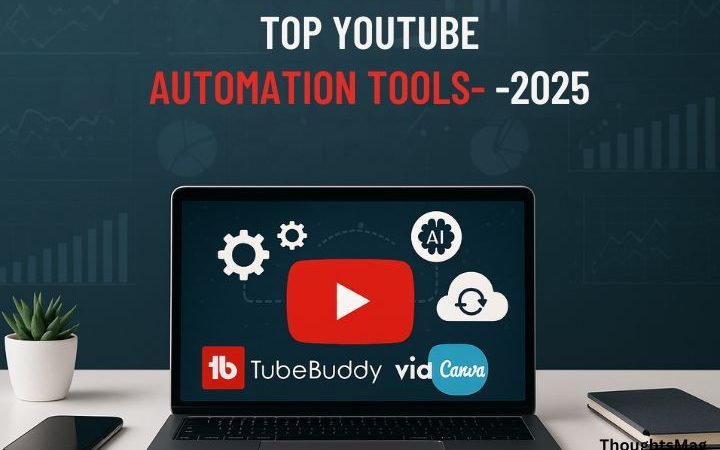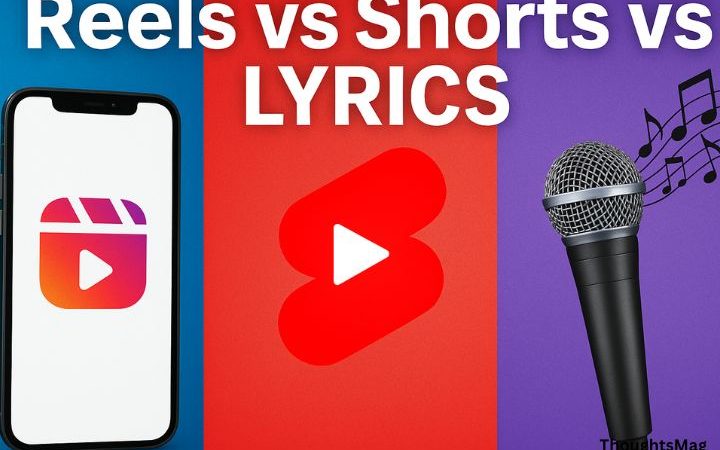High-Quality Blog Content Off-Page SEO: Strategies for Success
High-quality blog content and off-page SEO are essential to any robust digital marketing strategy. It encompasses a variety of practices aimed at boosting your search engine rankings through off-site activities. Off-page SEO involves creating trustworthy and authoritative content, leveraging influencer marketing, and building a backlink profile that signals relevance and quality to search engines. This comprehensive approach can significantly enhance the visibility and credibility of your blog, driving more organic traffic and engagement.
Introduction to Off-Page SEO
While technical SEO and on-page SEO refer to optimizations on your website, off-page SEO includes off-page factors that influence engine rankings. These elements, such as backlinks and social media presence, play a crucial role in how search engines assess and rank your site, complementing the on-page efforts to create a cohesive optimization strategy.
The Importance of Off-Page SEO in Digital Marketing
In digital marketing, off-page SEO is as crucial as technical SEO and on-page optimizations. It helps you build relationships with influencers in your niche, increasing brand visibility and credibility. Moreover, off-page factors such as social signals and link building can significantly impact your site’s authority and trustworthiness, affecting its overall performance in search results.
Off-Page SEO vs On-Page SEO: Understanding the Difference
The optimization strategy for a website includes both off-page and on-page SEO factors. While on-page SEO involves keyword research, keyword usage, and optimizing internal links, off-page SEO focuses on building a site’s reputation through external means. If you want to rank higher, incorporating LSI keywords in on-page content is essential, as is outreach to build backlinks for off-page SEO, which ultimately enhances engine visibility.
Enhancing Your Off-Page SEO with Quality Backlinks
Quality backlinks are the cornerstone of a sound off-page SEO strategy. They serve as endorsements from other websites, signaling to search engines that your content is valuable and relevant, thus improving your search engine rankings and online authority.
The Role of Backlinks in Off-Page SEO
Backlinks are a critical metric for off-page SEO, as they directly influence how search engines perceive the quality of your content.
Broken link building is an effective method of gaining high-quality links by identifying and replacing outdated or non-functional links on other websites with relevant content, thereby enhancing your backlink profile.
Creating and sharing long-form content can attract authority backlinks, as comprehensive, in-depth blog posts are more likely to be referenced and cited by other content creators and websites in your industry.
Strategic Guest Posting for Link and Authority Building
Guest blogging is a strategic method for acquiring backlinks and increasing your blog’s authority. By contributing valuable content to other blogs, you can secure unlinked brand mentions and gain recognition in your industry.
Identifying the right opportunities for guest blogging is crucial for maximizing mentions and backlinks. Targeting blogs that align with your brand’s values and audience can lead to more meaningful collaborations and SEO benefits.
Crafting Research-Backed Content to Earn Backlinks
Crafting research-backed content establishes a blog as a thought leader and is crucial in earning links that tell Google about a website’s relevance and quality. By producing data-driven articles, infographics, and comprehensive guides, websites can attract backlink analytics attention, encouraging other sites to link back and enhancing the overall off-page SEO.
Strengthening Brand Signals and Online Visibility
Brand signals serve as a vital component of off-page SEO, where the consistency of a brand’s online presence influences search engine perceptions. Companies can monitor and enhance online visibility through effective brand tracking, ensuring their brand signals remain strong and clear.
Auditing and Amplifying Your Brand’s Digital Footprint
Auditing a brand’s digital footprint can reveal opportunities to acquire authoritative links and increase referral traffic. Efficient brand tracking mechanisms are essential for businesses to monitor their brand’s performance and reputation online. By setting up alerts and utilizing tracking tools, companies can gain insights into how their brand is perceived, respond to customer interactions promptly, and measure the effectiveness of their off-page SEO strategies.
Capitalizing on Social Media Platforms for Brand Awareness
Social media platforms are powerful tools for building brand awareness, offering opportunities for customer service excellence, and increasing branded searches and mentions. These platforms are integral to off-page SEO strategies, allowing brands to engage with their audiences and expand their reach beyond their website.
YouTube offers a unique avenue for enhancing off-page SEO through engaging video content. By creating informative and entertaining videos, brands can attract viewers, encourage shares, and generate traffic, increasing brand recognition and authority in their niche.
Enhancing E-A-T with Trustworthy Brand Mentions
Securing trustworthy brand mentions is pivotal to enhancing a website’s E-A-T—Expertise, Authoritativeness, and Trustworthiness. These brand signals contribute significantly to a site’s reputation and are factored into search engine rankings, highlighting the importance of maintaining a positive and authoritative online presence.
Building a Strong Off-Page SEO Framework
Building a solid off-page SEO framework involves creating a cohesive strategy encompassing brand mentions and backlinks, social media presence, and partnerships.
Distinguishing Your Brand with Unique Visuals and Press Releases
Unique visuals and well-crafted press releases can significantly contribute to a brand’s off-page SEO strategy. They help in generating mentions and backlinks, which are crucial for increasing a site’s visibility and authority in the eyes of both users and search engines.
Distributing press releases is an effective way to boost brand recognition and communicate key messages to a broader audience. This tactic can lead to increased media coverage, backlinks, and enhanced online visibility, all of which play a role in a comprehensive off-page SEO strategy.
Partnerships and Collaborations with Larger Brands
Forming partnerships and collaborations with larger brands can open new avenues for exposure and link-building opportunities. These relationships can lead to joint ventures, co-branded content, and shared audiences, amplifying a brand’s reach and strengthening its off-page SEO efforts.
Engaging in Industry Roundup Posts and Interviews
Engagement in industry roundup posts and interviews is an excellent way to garner attention and earn valuable links and mentions. By contributing expert insights and sharing knowledge, brands can position themselves as authorities in their field, enhancing their off-page SEO and overall digital marketing strategy.
Advanced Off-Page SEO Techniques
Advanced off-page SEO techniques encompass a variety of strategies designed to boost your site’s visibility and credibility.
-
Social Bookmarking for Visibility
Social bookmarking is an off-page SEO tactic that can enhance a brand’s online visibility. By sharing content on these platforms, brands can reach new audiences and drive traffic back to their site, increasing engagement and visibility.
Furthermore, social bookmarking sites often have high domain authority, which means that links from these sites can improve a brand’s search engine rankings. When used effectively, this strategy can significantly amplify the content and brand’s presence in the digital landscape.
-
User Engagement with Q&A Platforms
Question and answer platforms are fertile ground for enhancing off-page SEO by fostering user engagement. By actively participating in these communities, brands can share expertise and subtly promote their high-quality blog content. This engagement often leads to a lower bounce rate, as users who find helpful answers on these platforms are more likely to visit the source website and stay longer, exploring related content.
Answering industry-related questions with thorough, informative responses can position a brand as an authority in its niche. Moreover, these platforms often include relevant links to the brand’s blog, which can drive targeted traffic and support the overall significance of off-page SEO and backlink-building efforts.
-
Repurposing High-Quality Content Across Mediums
Repurposing high-quality blog content across various mediums is a strategic move in off-page SEO. By adapting blog posts into formats such as infographics, videos, and slideshows, businesses can reach a wider audience and cater to different content consumption preferences. This cross-platform presence ensures valuable insights resonate with a diverse audience, amplifying the content’s reach and impact.
The transformation of text-based content into visual or auditory formats not only caters to different learning styles but also opens up new channels for sharing and link acquisition. These repurposed pieces can be distributed on platforms that may not traditionally host written content, extending the brand’s digital footprint and reinforcing its authority in the eyes of Google and users alike.
Conclusion
A strategic approach to high-quality blog content off-page SEO is essential for businesses seeking to improve their online visibility. By understanding the intricate relationship between on-page and off-page SEO and their collective impact on a site’s chances of ranking, brands can develop a robust digital marketing strategy that yields long-term benefits.
Visual content, blogger outreach, and strategic backlink building support high-quality blog content off-page SEO. Focus on enhancing organic traffic, refining SEO ranking strategies, and leveraging backlinks and other off-site signals to boost a brand’s visibility in Google’s search results.






